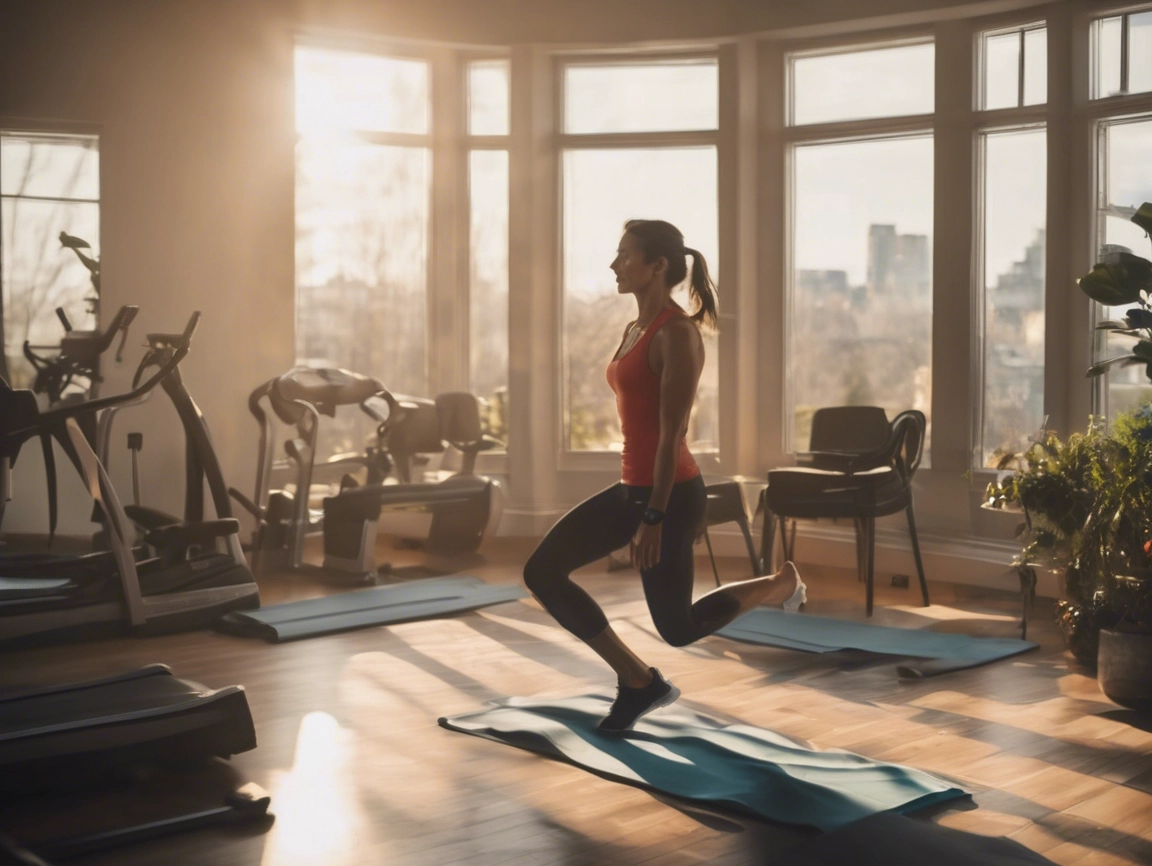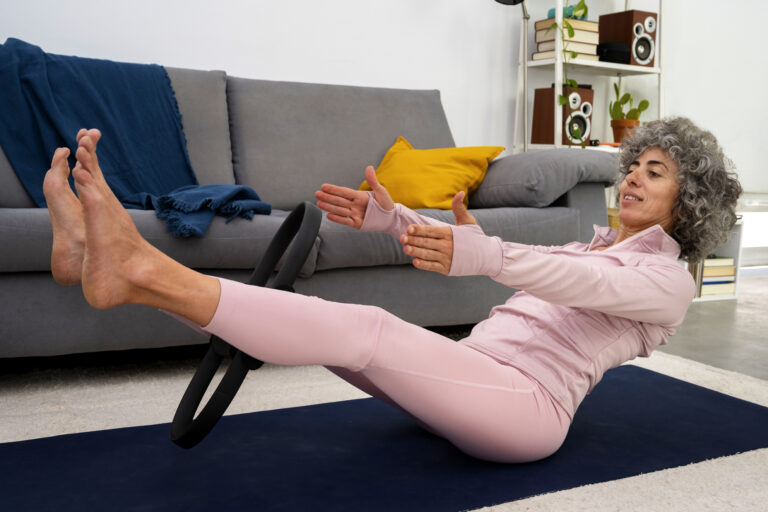What Is the Best Time to Work Out at Home for Beginners?
Is There Really a “Perfect” Time to Work Out?
If you’ve just started your fitness journey, one of the first questions you might ask is, “What’s the best time to work out at home?” Morning or evening? Before breakfast or after dinner? With so many opinions floating around, it’s easy to feel overwhelmed.
Here’s the truth: while science offers insight into the pros and cons of different workout times, the most effective time to exercise isn’t the same for everyone. In this guide, we’ll explore the benefits of different training windows, compare morning vs evening workouts, and help you figure out the best time of day to exercise—for you.
The Scientific Benefits of Morning Workout
Early riser? Morning workouts might be your sweet spot. Here’s why:
🔥 Boosts Metabolism
Starting your day with movement can jumpstart your metabolism and keep you burning calories throughout the morning.
🧠 Enhances Mental Focus
Exercise increases blood flow to the brain, which helps you stay sharp and focused for the rest of the day. A great tool for productivity!
🕒 Builds Consistency
By working out early, you’re less likely to have your routine disrupted by last-minute plans, work deadlines, or evening fatigue.
🌞 Supports Healthy Habits
Getting your at-home workout done before the day starts leaves you feeling accomplished and more likely to make healthier food choices.
Morning vs evening workouts both offer benefits—but if you’re a morning person or want to lock in your training before life gets hectic, this could be the best fit.
The Practical Advantages of Afternoon or Evening Workouts
Not everyone wakes up ready to jump into squats and push-ups—and that’s totally okay. For many, afternoon or evening workouts are more sustainable. Here’s why:
💪 Peak Performance
Research shows strength and endurance often peak later in the day when your body temperature is higher, which can improve overall performance.
😌 Stress Relief
Had a stressful workday? A workout at home in the evening can help you unwind, reduce anxiety, and improve sleep quality.
🍽️ Better Fueling
By afternoon, you’ve likely had a few meals, which gives your body the energy it needs to perform well—especially for strength-based workouts.
🕯️ More Time to Warm Up
You’re usually more mobile and flexible later in the day, reducing the risk of injury during your workouts at home.
Whether you’re squeezing in movement after the kids go to bed or blowing off steam after work, evening workouts can offer both physical and emotional benefits.
The Most Important Factor: Finding Your “Consistency Window”
Here’s the big secret: the best time to work out at home isn’t defined by science—it’s defined by consistency.
Sure, early workouts might boost metabolism. Evening sessions might increase strength output. But none of that matters if you can’t stick with it.
Your “consistency window” is the time of day when you’re
- Most likely to follow through
- Least likely to be interrupted
- Most mentally and physically ready to exercise
Think about this: would you rather hit a decent workout 4 days a week in the evening, or a “perfect” morning workout once every two weeks? Results come from showing up consistently—not from picking a magic time slot.
How to Choose the Best Workout Time for You (A Quick Guide)
Use this checklist to identify your personal best time of day to exercise:
- 📅 Examine Your Schedule: Do you have uninterrupted time in the morning, lunch hour, or evening?
- ⚡ Pay Attention to Energy Levels: Are you more alert in the morning, or do you get a second wind after 6 PM?
- 👨👩👧 Consider Your Responsibilities: When are you least likely to be interrupted by work, family, or social obligations?
- 🎯 Align with Your Goals:
- Fat loss: Choose a time you can maintain high consistency and effort.
- Muscle gain: Pick a time when you feel strongest and best fueled.
- Stress relief: An evening session might help you decompress.
- Fat loss: Choose a time you can maintain high consistency and effort.
- 📆 Test & Tweak: Try both morning and evening workouts for one week each. Which one felt more enjoyable and sustainable?
This quick audit can help you tailor your at-home fitness schedule in a way that works with your life, not against it.
Conclusion: It’s Not About When—It’s About Showing Up
So, what’s the final verdict on the best time to work out at home?
There’s no one-size-fits-all answer—and that’s actually good news. Whether you’re an early bird who loves sunrise planks or a night owl powering through push-ups after dinner, the best time is the time you can commit to consistently.
Start small. Stay consistent. And most importantly, enjoy the process. Your home can be the perfect training ground—you just need to find the right rhythm that keeps you moving.
The best part? You can start right now with zero gear and minimal space. If you’re still unsure where to begin or how to stay consistent, check out our helpful guide on How to start working out at home with zero equipment. It’s packed with tips to kickstart your journey and keep you moving forward.






